
Contents

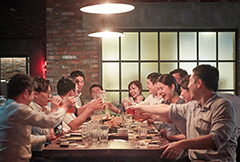


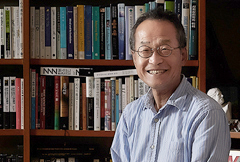
Consilience

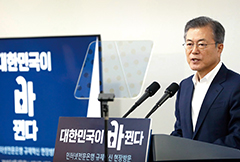
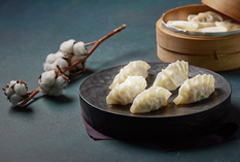
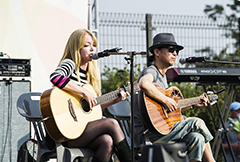


Korea, My Destiny
The Place Where I Discovered My Potential
Korea turned my life in a new direction and gave me many unforgettable experiences. I will stay here and continue to sing. One of my aims is to introduce traditional Korean music to many people around the globe so that one day it will be as famous as K-pop.
Written & photographed by Romina Alexandra Follinus, singer and reporter
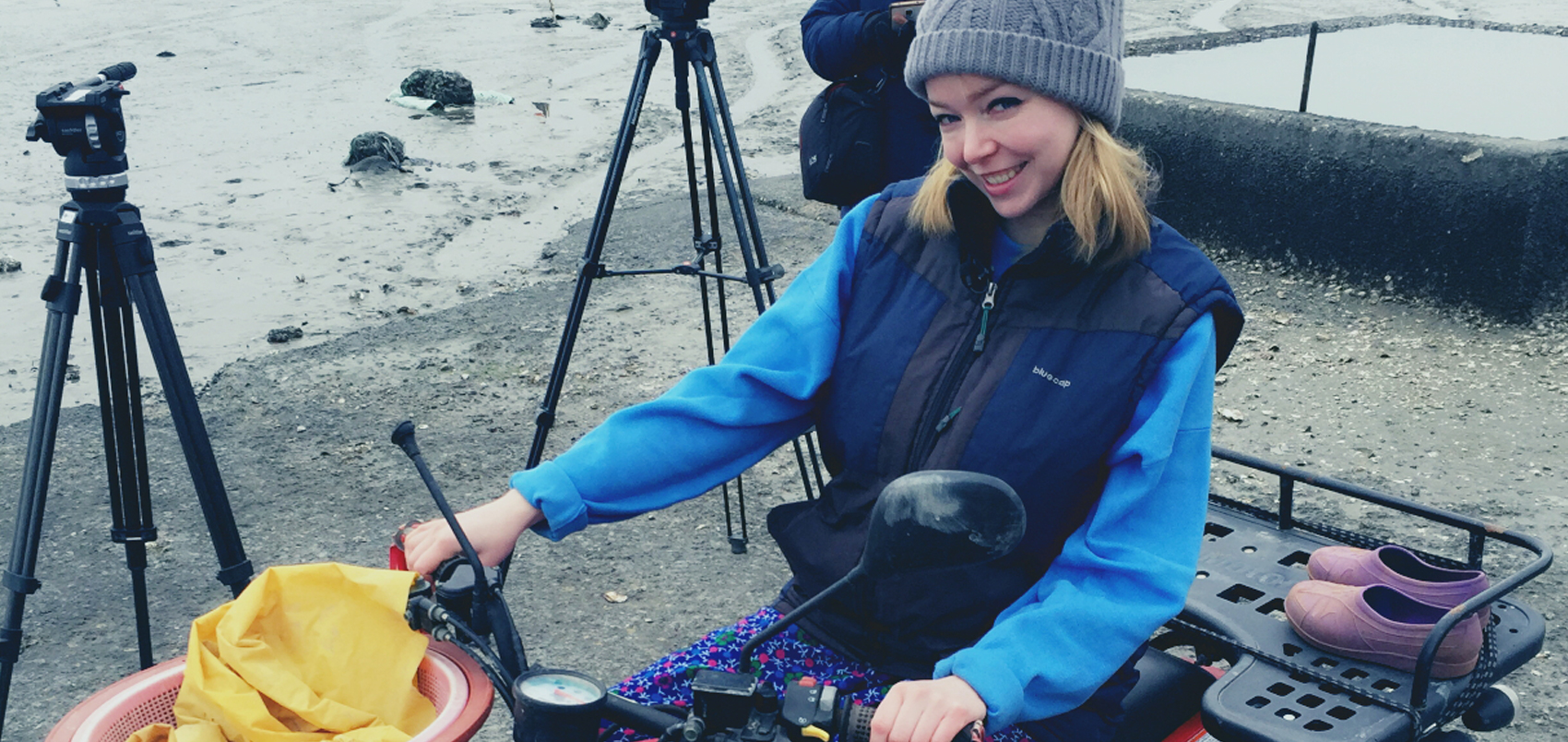 Romina is ready to explore the mud flats in “My Home 6 O’clock.”
Romina is ready to explore the mud flats in “My Home 6 O’clock.”Falling in Love With Korea
From childhood onward, I always loved traveling and had a desperate longing to see far away countries. My love for Jackie Chan inspired me to visit China one day. While I stayed there for about two years, all the friends I met, surprisingly, were Korean. During the holidays we made a journey to Korea together and I got really fascinated by Korea: its modernity, advanced technology, clean streets, fantastic food and 24-hour saunas. Also, there was no need to pay for a public toilet. The list could continue on and on. Korea was so different from other countries I had been to, and I wanted to explore its culture and history more and, above all, the language that sounded so beautiful to me.When I finally went back to Germany, I chose to major in East Asian Studies to focus more on learning about Korea and this gave me another chance to study at a university in Korea as an exchange student in Seoul. My exchange student life in Korea was shaped by jjimjlbang public saunas, watching period dramas, and eating fried chicken and beer. Needless to say, studying the language and sightseeing were a big part of it. Particularly, I loved the old palaces, the buildings with a peaceful aura that were great for taking a walk on a sunny fall day when the leaves on the trees turned red gold. This beautiful memory of Korea made me stay longer than I was supposed to.
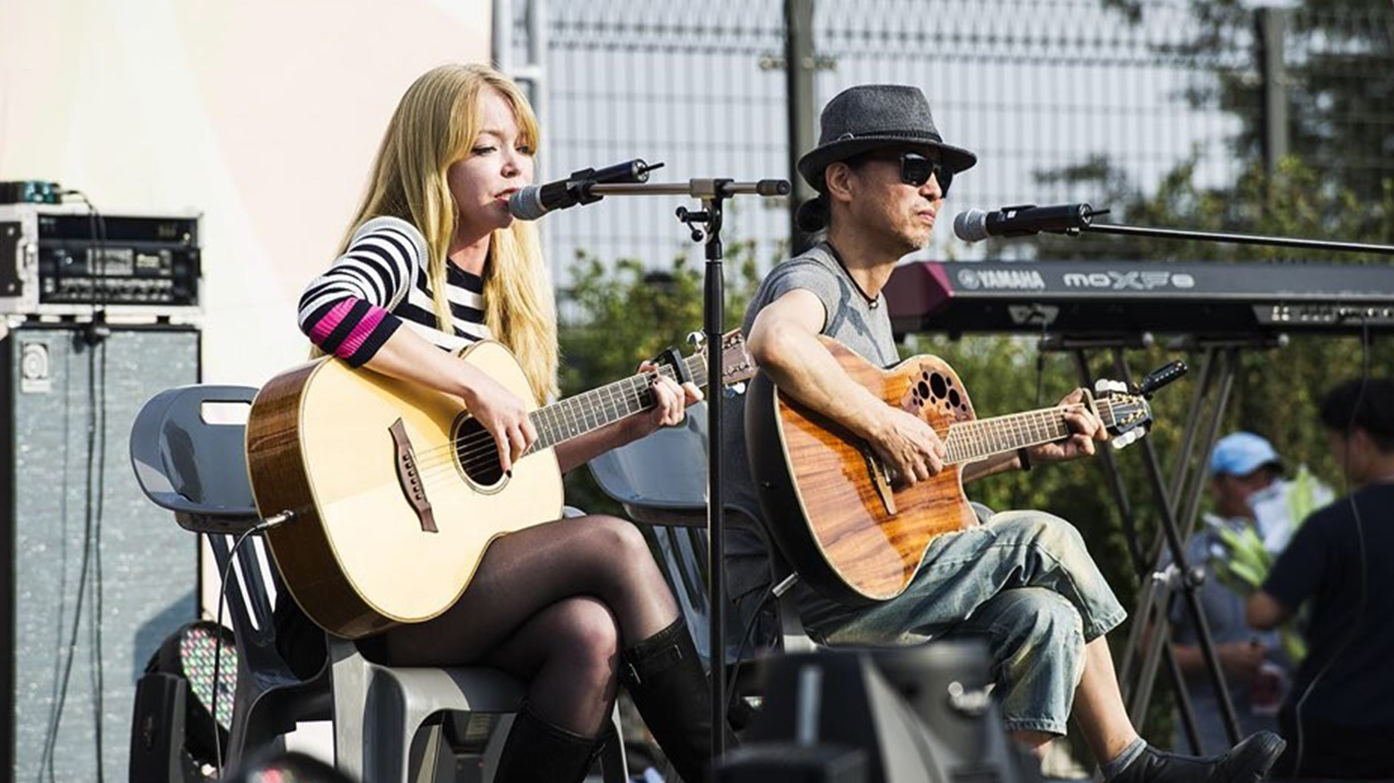 Romina is performing on stage.
Romina is performing on stage.My Inspiration,
Legendary Korean Singer Lee Mi-ja
Through my Korean friends, I got to learn about the traditional songs by Lee Mi-ja. I immediately fell in love with her voice and listened to nearly all the CD’s out there. The lyrics were like poetry although some Korean words were a bit difficult to understand in the beginning. The old expressions and poetic lyrics that are not often used in daily life helped me to enjoy studying Korean on an even deeper level. Traditional songs were full of meaning and reflected the lives of Korean people during hard times after the war. When I went to see a concert of Lee Mi-ja, I saw many older people with tears in their eyes while listening to her songs because the songs reminded them of their youth and gave them consolation. It deeply touched my soul and I started singing her songs ever since then. Korean was still a foreign language to me and it was challenging to pronounce some of the words properly. However, since the lyrics were mostly sad, I didn’t want to sound funny by pronouncing them wrong. After a lot of training with my guitar teacher, I was finally able to play her most famous song “Dongbaekagassi” on the guitar and to sing it. My teacher took a video of me singing and uploaded it to social media. We discovered the video already up on YouTube with thousands of views. As the video got popular, it appeared on the news and I even got invited on to local TV shows.In 2014, I sang Lee Mi-ja’s song “Assi” on the TV show “Gayomudae” where singers sing famous old songs. This changed my life. Lee Mi-ja, who I followed in my heart, got to see it and reached out to me. We finally met and she asked me if I’d be interested in singing with her on her concert as a guest. I never dared to dream about this. It was unbelievable. Since then, I’ve had the great honor to be part of her concerts.
Career as an Entertainer
In 2015, I had the chance to be part of the soap opera “Save the Family” as an actress. I was so amazed when they suggested I act since it was my childhood dream to be an actress. I had acting experience as a kid in Germany, but this opportunity continued my career as an actress despite a long gap.In 2016, I had another opportunity to be on TV as a reporter in the show “My Home 6 O’clock,” the popular show where reporters visit the countryside and introduce the landscape, food and people they meet there. In this show, my Russian friend and I traveled to rural areas and helped them with their work, learned about the place while people there took care of us in return. While we all ate, worked and slept together, we found ourselves already so attached to the local people we met that it was always the hardest thing to leave after all those memories we made together. People, especially in rural areas, have so many warm and caring feelings toward other people. They treated us like their own family, gladly sharing their food and space with us.
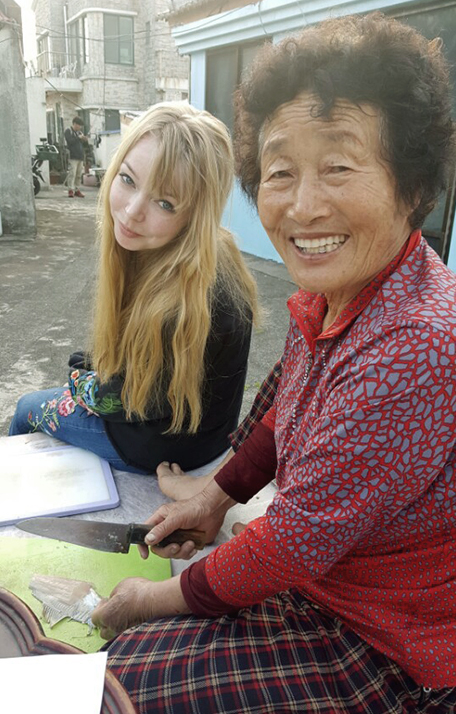 On Romina’s Jeju trip, she enjoyed spending time with the local host.
On Romina’s Jeju trip, she enjoyed spending time with the local host.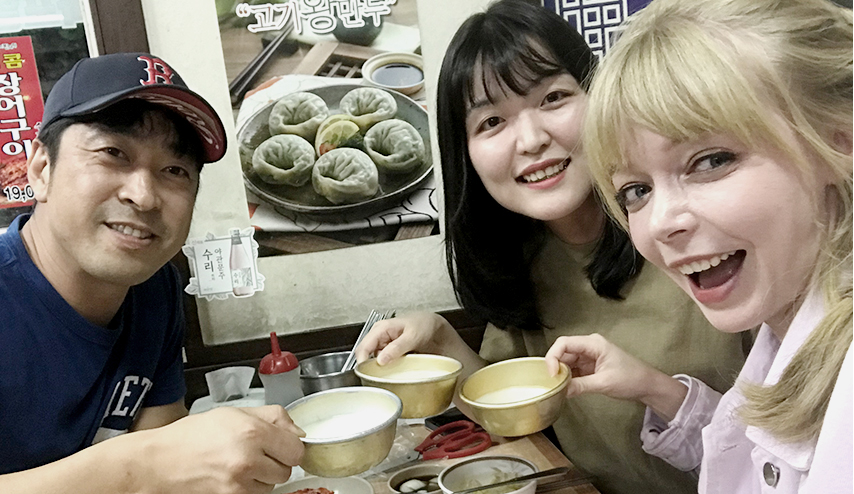 Romina enjoys makgeolli Korean traditional alcohol with her friends.
Romina enjoys makgeolli Korean traditional alcohol with her friends.This program has allowed me to see more of Korea than even most local people could ever do. It would’ve not been possible for me to have authentic experiences had it not been for being part of this TV program. One of my favorite experiences was on Jeju Island. We stayed there with haenyeo, women divers. These women, mostly in their 70s or 80s, have been diving in the sea all their life, catching sea cucumbers, urchins and other living creatures from the waters. This can be very dangerous because they don’t have any modern equipment and they have to hold their breath for a long time. I respect them deeply. It was so hard to catch even one urchin for me. Another special experience was to stay at Golgulsa Temple for three days where we learned sunmudo, the Buddhist way to train one’s body and mind. For this, we got up at 3 a.m. to meditate until sunrise. It was forbidden to eat meat or to smoke or to drink alcohol at the temple. We ate local vegetables and fruit that was so fresh that we, non-vegetarians, didn’t even miss meat at all. I would recommend the Temple Stay program to anyone who wants to have a deeper experience of a religious life in the mountains.
Passion for Music Never Dies
As my career began with my love for Korean music, it still is an ongoing project for me, but this time, I created my own music. The highlight of this year was to release my first mini album produced by myself, containing songs written by my guitar teacher, who is also a famous composer. The title song of my album, called “Sangsahwa,” suits Korean historical period-piece dramas since he already knew my affection for sad melodies and for Korean historical TV shows. This song is a combination of traditional Korean music, TV sound tracks, and synthesized polka. Two more songs, “Eheradiya” and “Bongseonhwa,” were remade from the old songs originally made in 1926 during colonial times, singing for the hope in its sad melodies. It’s my favorite, since it uses traditional Korean and Western instruments at the same time that create cheerful and unique sounds. It also delivers my hope for peace on the Korean Peninsula. From Germany, myself, once divided into an East and a West, the concern over the divided Korea has always been close to my heart. I want to contribute to the reunification of Korea, a country I deeply love. I don’t know exactly how, but I know I can sing a song of peace for the Korean Peninsula.
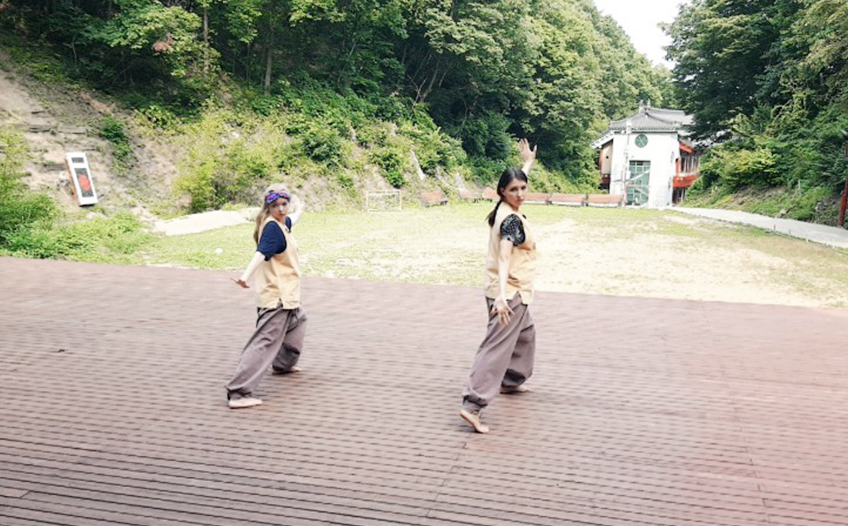 At Golgulsa Temple, Romina learned sunmudo, the Buddhist way to train one's body and mind.
At Golgulsa Temple, Romina learned sunmudo, the Buddhist way to train one's body and mind.Korea & I features contributions from non-Korean, reflecting the opinions of the writers as faithfully as possible. Thus the opinions expressed therein may differ from the opinions of the editors of KOREA magazine.
Other Articles





Consilience





Application of subscription
Sign upReaders’ Comments
GoThe event winners
Go


 September 2018
September 2018


